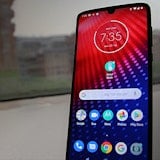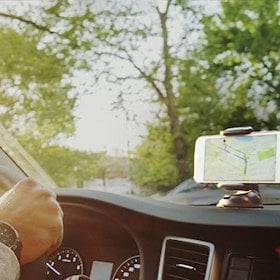
If you’re on our site then we assume that you’re at least a passing fan of technology. It’s certainly no secret that we love our smartphones and we usually do our best to make sure that you end up with one that you love too. However, can too much of a good thing affect us psychologically?
Recent research is beginning to suggest that our modern plugged-in lifestyle may not be all that it’s cracked up to be. Sherry Turkle, a noted MIT professor of psychology, and Dr. Harry Brandt of The Center for Eating Disorders at Sheppard Pratt have noted some concerns regarding our increasingly shared online lives.
Before you sigh and roll your eyes we’d encourage you to hold off on your judgement. Professor Turkle’s TED talk is well thought out and persuasive and Dr Brandt’s theories, while a bit less thorough, still raise some valid points.
Professor Turkle points out that through our increasing desire and ability to control where and when our attention falls that we’re losing the potential to be bored and alone. This might sound like a great thing, but Turkle is concerned that, especially amongst adolescents, boredom and solitude and important for self-reflection and the establishment of personal identity.
Turkle argues that this idea of never being alone and remaining connected is actually contributing to an increased sense of loneliness. In many instances we replace intimate face-to-face conversation with online connectedness. We’re also never found in a situation where the only thing to do is sit and think about ourselves as we always have little games to play, people to chat to and statuses to check wherever we are. Instead of really getting to know someone else through a live conversation some of us only ever received a diluted or augmented version of who they really are through their own self-editing process.
She also raised concerns over our newfound ability to ‘edit’ our personality by only showing the photos of us that we find best, by taking as much time as we need to carefully word a text message, email or instant message before responding and to even delete anything after we’ve posted it if we decide we don’t like it later. Instead of taking time to reflect on ourselves we instead paint the best picture we can without actually evolving our psyche in any meaningful way.
The notion of “I share therefore I am” was also raised as an example of our desire to always be heard. While technology gives us a voice that can be heard by hundreds, what we’re often only doing is speaking to a machine. Through our devices we feel that we will always be heard and never be alone. But sacrificing that intimate, face-to-face conversation for a simpler and more edited version can hinder our own processes of self-reflection.
Turkle goes on to state that much of this is fine for those of us that have already developed social skills and the art of conversation. But increasingly she has seen evidence in adolescents of an inability to hold a conversation with any level of comfort. The younger generation is apparently turning more towards textual communication due to the safety blanket it offers regarding how we believe we control the way in which we are presented. This leads to difficulty when dealing with face-to-face communication, as that safety buffer has been removed.
Professor Turkle’s argument gives credence to that of Dr Brandt, who talks about possible links between Facebook use and eating disorders. It all ties back in to that idea of self-editing. We can try as hard as we want to only show our best side online, but pics of you that you dislike are always going to crop up and the best you can do is un-tag yourself so that it doesn’t show up on your profile, but they’re still always there and you know it. So in order to always appear as desirable as possible in any picture that might be taken we need to physically edit ourselves too. This can, of course, lead to a healthier lifestyle, but Dr Brandt feels that the more obsessive and unconfident members of our society may feel pushed in to taking it too far.
Moreover, where we could once limit our use of Facebook we’re now thrust back in to it over and over whenever we use it to log in to an online service or to a game on our phone. We see the carefully chosen display pictures of all our friends with increasing regularity outside of Facebook. I personally have the Facebook pics of my friends as their contact display-image on my phone. This increasing push to view and use social media brings with it the increasing pressure to make sure we appear in a way in which we find ourselves desirable.
Brandt doesn’t believe that those who are not already psychologically or psychobiologically at risk of developing an eating disorder will be affected. Rather he thinks that Facebook and other social media services would only affect someone for whom a disorder is a pre-existing risk. It’s a fair enough point. Subjecting someone who is already deeply self-conscious to an increasing bevy of self-portrayal has an obvious potential to spiral out of control.
Going back to Turkle, the Professor believed that rather than this being the fault of technology it’s rather our use of it that has created these issues. She states that we can employ our online lives in such a way that allows us to learn things about ourselves that we can reflect on once we disconnect. It’s the idea of disconnecting every once in a while that is important to the professor and we have to say we agree. Plugging in is great, but the idea of ‘too much of a good thing’ is a very old and very apt one.
So, maybe it’s time to go sit in a room somewhere and be alone for a while. According to Turkle a bit of boredom is good for the psyche.
If you’d like to check out Professor Turkle’s TED talk we suggest you do just that.
Now, how do we be bored again… is there an app for that?
Image Credit: User TZA on Flickr
Related Articles
Find Better Phones and Plans
Hundreds of cell phone plans unpacked. All the facts. No surprises.







































